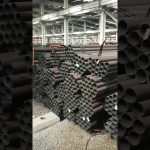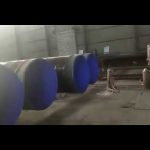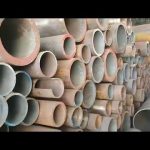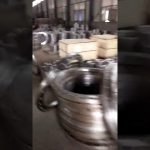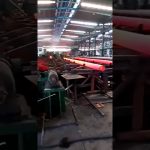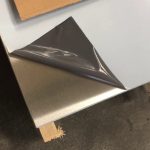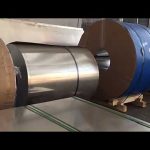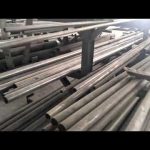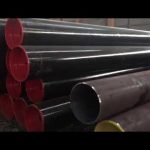The emphasis on corrosion resistance is important due in large part to the varying types of environments in which the end products are used. Let's start with a basic rule of thumb, which says the higher the chromium levels contained within the stainless steel, the more corrosion resistant the product.
Stainless steel is normally considered to be resistant to uniform corrosion in a specific environment if the corrosion rate does not exceed 0.1 mm/year. Resistance to uniform corrosion generally increases with increasing levels of chromium, nickel, and molybdenum.
Similarly, 316 stainless steel, which exhibits resistance to corrosion in environments with up to 1000 mg/L chloride content, can also be considered for high-chloride applications. 4. Welded Steel Joints are More Likely to be Affected by Corrosion When stainless steel joints are welded, areas that are vulnerable to corrosion may develop.
As a result, there is a need for low maintenance and high-reliability piping for this industry. Many corrosive environments exist within the oil and gas industry, which is why corrosion resistant pipe is more important than ever before. Corrosion Resistance in the Fencing Industry
Stainless steels are most commonly used for their corrosion resistance. The second most common reason stainless steels are used is for their high temperature properties; stainless steels can be found in applications where high temperature oxidation resistance is necessary, and in other applications where high temperature strength is required.
Stainless steel pipe has high corrosion resistance in plumbing applications and drinking water transfer, even at high flow rates. It is suitable for use in natural gas, oil, and steam applications.
The corrosion resistance is the same as that of 304 stainless steel, however, it has higher strength because of its high carbon content. 303 stainless steel The 303 stainless steel can be machined more easily than 304 stainless steel by adding a small amount of sulfur and phosphorus. 304 stainless steel
Stainless steel plate is often referred to as "corrosion-resistant steel" - it does not stain, corrode or rust as easily as normal carbon steel. It would however be misleading to say it is corrosion-proof.
Website: https://www.emilymetal.com/
Email: [email protected]
Emily has an annual capacity of 10 million tons (of which 3.5 million tons are stainless steel). It can supply various special steel and stainless steel series products, including high quality cold-rolled coil/plate, hot-rolled coil/plate, hot-rolled medium plate, rod, seamless tube, welding tube, pipe fittings, flanges, profile steel, forgings and etc. It has several product clusters like stainless steel, special steel and high strength high ductility series that feature higher performance, energy efficiency and longer service life, which helps Emily stainless steel and special steel supplier with the fullest range of grades and specifications of products worldwide. We are the leading supplier of all steel material and related services for the world's energy industry and certain other industrial applications.

